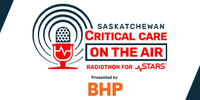Impaired driving has been an issue in Saskatchewan for years. However, most people think of drinking and driving in those instances. Now, drug-impaired driving has been drawn to the forefront with the recent legalization of marijuana.
Constable Jeff Bartsch with the Weyburn Police Service is one of the trained officers in Weyburn to recognize people under the influence of drugs.
"Impaired driving by drug is nothing new, but having said that, with new legislation, people are going to test the waters," Cst. Bartsch said in an interview. "In my experience now, I've been a drug recognition expert since about April or May, and I've done a handful of tests already."
To become a Drug Recognition Expert is no easy task. There is plenty of training required along with classes and tests that need to be passed. There are only two certified DRE's in Weyburn and less than 100 altogether in the province.
Bartsch said passing the course was one of the hardest things he's ever done, spending months studying for it.
"It's a specialized training program similar to that of a breath technician – which I'm also trained in for alcohol testing. The training is quite intensive and it's very tough, very tedious. Part of it's done in Regina and the other part is done out of the country in Florida," he explained.
So what exactly does a Drug Recognition Expert do?
Aside from the roadside field sobriety test, DRE officers can be called into duty at any time. Whenever an officer has a suspicion of a drug-impaired driver they can pull them over and perform basic tests. If their suspicion has grounds to warrant something further, the suspect is taken back to the station where a DRE officer can perform further testing.
Having taken courses and training to be able to perform these with accuracy is what leads the officers to be able to lay charges.
"We go through a step-by-step process to make it standardized across North America. At the end of the day, we work through a worksheet and come up with an opinion at the end of that," Bartsch said. "It's the same situations as what you would possibly see on T.V. with the eye tests and the walk-and-turn test. Then we get into the clinical signs of blood pressure and things like that."
It's not just weed that police are concerned with. Although it's dominating the headlines, officers are still seeing people operating motor vehicles with cocaine, methamphetamines, or even prescription drugs in their system. Using the standardized tests, police are able to classify which drug you're on and what the side effects are.
"Different drugs affect people in different ways. Having said that, there are certain effects that are the same for everyone, when it comes to clinical signs such as blood pressure or a physiological sign," the DRE officer said. "It's similar to alcohol. Someone with a very high tolerance is going to display it a little differently than someone who maybe smoked for the first time."
In the coming weeks, the Weyburn Police Service is adding the Dräger DrugTest 5000 to further add to their arsenal of combating drug-impaired driving. Cst. Bartsch emphasized how prescription drugs can also warrant charges if you aren't careful. According to Bartsch, he's issued a few tickets for people who were on over-the-counter drugs.
The message is an age-old one, but for some reason, people still need to hear it.
"You've heard it a million times on the radio and T.V., 'don't drink and drive, don't use drugs and drive'. But, know where you're at and know what impairs you. Make sure you read labels and if you have questions, you need to ask," Bartsch stated.
With legalized cannabis soon making it's way to Weyburn, drug-impaired driving is sure to escalate. Cst. Bartsch and the rest of the WPS will be working to hard to keep the streets safe.















